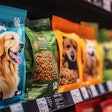That didn’t take long. Just one month after the New York Times reported that the fish used in some pet foods was caught in the South China Sea using slave labor, four consumers filed a class-action lawsuit in California against Nestlé Purina PetCare, one of the companies named in the article. That was followed two weeks later by a similar suit against Mars Petcare, the other named pet food company.
Now the politicians are piling on: In August, Senator Richard Blumenthal (D-Connecticut) proposed legislation intended to increase transparency and accountability in corporate supply chains; the bill would require larger companies to report their actions to prevent the use of trafficked workers. Then last week, Representative Carolyn B. Maloney (D-New York) wrote the National Oceanic and Atmospheric Administration, urging it to put more focus on illegal fishing and preventing “trafficking and slavery in the fishing industry.” (This was reported by Ian Urbina of the New York Times, who wrote the original article on slave labor being used to catch the fish.)
This is all following a predictable pattern. First an issue, often controversial, stirs consumer passion and media attention (and any sort of link to their beloved pets is a natural for pet lovers). Then a lawyer notices a large company or two is involved—meaning deep pockets and, thus, a juicy target and potential payoff—and finds a few litigious consumers (not difficult to do in the US, especially in California. Full disclosure: I lived there for 13 years). And a lawsuit is born. Or, in this case, two: the class-action lawsuits against Purina and Mars, no surprise, were filed by the same lawyer.
Next come politicians seizing on an opportunity for a soundbite. That happened earlier this year, in March, after yet another lawsuit was filed against Nestlé Purina over beliefs that its Beneful brand was making dogs ill. (Completely different reason from the recent lawsuits over the slave labor tied to fish-based pet foods, but you can’t help notice the similarities: large target, lawsuit filed in California.)
At that time, two senators, Dianne Feinstein of California and Dick Durbin of Illinois, called for the US Food and Drug Administration (FDA) to increase its oversight of pet food—seemingly unaware of a rather significant piece of legislation called the Food Safety Modernization Act (FSMA), which they both probably voted for nearly five years ago and which FDA has used to dramatically intensify its focus on pet food, including establishing a zero-tolerance policy for Salmonella in pet food facilities (much more stringent than its standards for human food). That’s the main reason why the number of pet food recalls has risen over the past few years.
Given their sheer size, not to mention their combined 40+% share of the global pet food market, Nestlé Purina and Mars are likely used to being the targets of media and legislative attention, as well as lawsuits, and have armies of PR people and lawyers to deal with them. But the increasing frequency of such lawsuits should be a cautionary tale for the entire pet food industry: pet owners care about social and environmental concerns in addition to their pets’ well-being. Most pet owners are not litigious, and not all are willing to pay more for pet foods or brands that actively address those concerns, but they will certainly notice when it comes to light that a pet food company may have even an indirect link to a social or environmental problem.
For pet food businesses, that means paying attention to what’s often referred to as the triple bottom line—financial, environmental and social—all the way through their supply chains. Actually, it should probably be the quadruple line for pet food, adding safety as the fourth pillar.
The recently published final version of the Current Good Manufacturing Practices and Hazard Analysis and Preventive Controls for Food for Animals rule under FSMA addresses safety in its Supply Chain Program (an element of the rule that essentially matches the Foreign Supplier Verification Program, another FSMA regulation). It may also serve as a good starting point for pet food companies to review other aspects of their supply chains and the suppliers that comprise them. Sourcing of protein-based ingredients, such as fish, seems especially prone to issues regarding sustainable supplies and, now, social concerns such as the labor used to obtain those supplies.



















